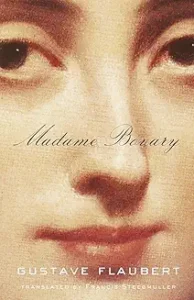Madame Bovary by Gustave Flaubert 1857, translated by Lydia Davis 2010
After a several year hiatus due to COVID and other life interventions, I’m auditing another course at Harvard College, a 25 student seminar led by Professor James Wood entitled ‘Consciousness in Fiction from Jane Austen to Virginia Woolf’. I missed the first several sessions which focused on “Pride and Prejudice” but managed to attend yesterday’s discussion about “Madame Bovary”, often described as the first modern novel.
Wood, who writes book reviews for The New Yorker and whose “How Fiction Works” and “Fun Stuff” are already classic works in the literary criticism world, is an engaging teacher and yesterday’s two hour long session flew by. I had read Flaubert’s classic in the Geoffrey Wall translation recommended by Wood when I took his previous large lecture course on the same topic perhaps 10 years ago, so this time I chose to read the Lydia Davis translation. Davis is one of those fascinating writers who manages to produce fine work in multiple genres—short stories, essays, poems, and translations.
The book, published more than 170 years ago, has lost none of its power in telling the story of Emma Bovary, a beautiful young woman who grows increasingly discontented with her provincial life in a small village in Normandy and embarks on a series of love affairs ending disastrously with her own suicide. Along the way we meet her husband, Charles a small town physician who is in love with Emma and blissfully unaware of her unhappiness and infidelity, the self-important pharmacist Homais, the adulterers Rodolphe and Leon, the conniving userer Lheureux, and a village full of other characters. Flaubert is famous for his need to find the bon mot, the perfect word, often writing only several lines a day, only to tear them up and work another day on the same material. The details in the book are most remarkable, and the contrast to today’s contemporary fiction is striking.
Wood’s seminar yesterday focused on Flaubert’s realism, his attempt to reproduce the world as he saw it, similar to Stendahl’s ‘mirror’ or Orwell’s ‘pane of glass’. Was this sincere or was it ironic, was it meaningful and original or was it kitsch and sarcastic? These are the elements of literary criticism available in the classroom. Reading this book alone would have left me with the plot, the characters, and the setting, but not the insights regarding realism and Flaubert’s style and intentions. That’s why we have higher education and I’m fortunate to be able to return to my college days at least for a few hours a week to experience courses that didn’t fit into my pre-med days in the 1960’s.



